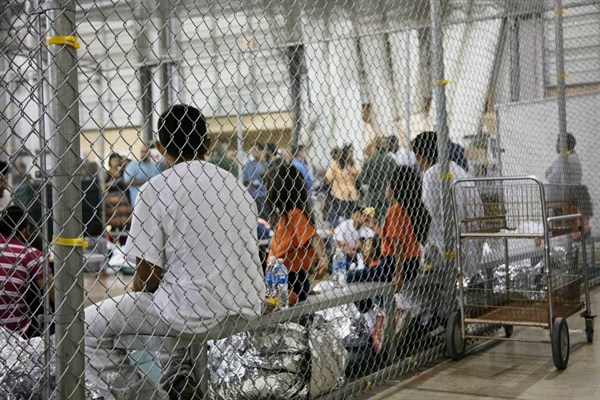In Europe and the U.S. this week, callous government treatment of asylum-seekers triggered public outrage and political tensions, which may be enough to soften policy in the short term. Unfortunately, that will not meaningfully address the underlying causes of the migration crises that have become the new political ground zero on both sides of the Atlantic.
Long-simmering tensions within the European Union boiled over when Italy’s new populist government refused to allow the Aquarius, a ship carrying rescued asylum-seekers from North Africa, to dock at an Italian port last week. The Aquarius was left stranded in the Mediterranean for days before it was able to dock Sunday in Valencia, Spain. Viewed through a narrow legal lens, the Italian authorities’ decision to turn the ship away did not violate international law, as the asylum-seekers had not been rescued in waters under Italy’s jurisdiction. But from a humanitarian perspective, it warrants the moral indignation it provoked in Italy and abroad.
In the U.S., the Trump administration’s decision to formally charge all asylum-seekers who do not enter the country through designated crossings with illegal entry, even if it means separating children from their detained parents, has similarly generated a wave of moral outrage. Again, from a narrow legal perspective, family separation grows out of the administration’s “zero tolerance” enforcement of existing U.S. laws that treat unauthorized border crossings as misdemeanors. But the humanitarian implications are contemptible. In essence, the U.S. government is inflicting emotional suffering on children to deter future asylum-seekers, and using the detained children as leverage in legislative negotiations in Congress. To make matters even worse, some asylum-seekers have reportedly been detained and separated from their children even though they arrived at designated ports of entry.

